I’m pleased with my September reading, especially because I was traveling a fair amount and also needed to write a book review for one of the titles, which for me is time-consuming.

Bastard out of Carolina by Dorothy Allison has been around a long time, but I’m just getting around to reading it. It is the story of Ruth Ann, aka Bone, a girl born out of wedlock in South Carolina. Her mother then meets and falls in love with a handsome young man, she has another child, and the man is killed in an accident. The mother, Annie, then marries Glenn, a man who is good to her but abusive to Bone, although Annie doesn’t or won’t see it. The book is a harsh picture of what it means to grow up poor, and while this particular family is Southern, in an afterward to the audio version Allison makes the point the same thing could have happened in a Northern family, and we shouldn’t use this story to reinforce the “white trash” stereotype. However, that’s exactly what the book does. The Boatwright family is an extended bunch of brawlers and boozers and the women aren’t much better than the men. Education is not a priority for anyone and as a result no one escapes. If Allison didn’t want to imprint the sterotype on the culture, she’d have set it in the North.
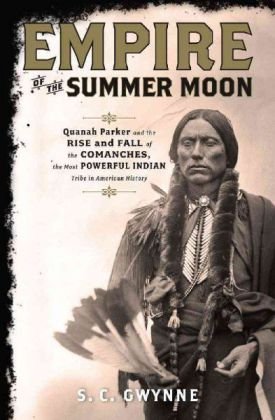
Empire of the Summer Moon by S.C. Gwynne is a detailed account of the conflict between various bands of Comanches, particularly the band led by Quanah Parker, and white settlers on the frontier, primarily in Texas. The book paints an excruciatingly clear picture of the brutality of the Comanches. However, it feels as though not enough attention is given to the fact that the settlers were stealing their land and committing their share of atrocities, too. While Parker (a name taken from the captive white woman who was his mother) and the other Comanches killed many on their raids conducted against the settlers, weren’t they only defending their territory against invaders? I’m not sure the book does enough to make that point. Still, I confess my relative ignorance about Native Americans, and this book was enlightening in many ways. This book was my bookclub’s selection for the month and coincidentally I had it with me to read when I attended a book tradeshow where I met the author (and picked up his latest book). He was delighted that we were reading his older book, now almost ten years old.
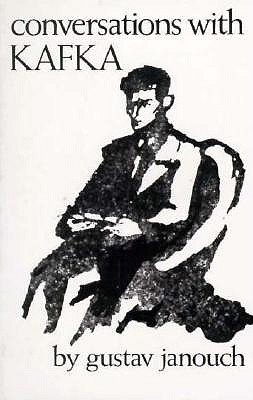
Conversations with Kafka by Gustav Janouch is a peculiar book that I found in a used bookstore right before I left for a trip to Prague, Kafka’s home. When Janouch was a young man, and for many years until Kafka died in 1924, the two of them met frequently. (Kafka was a lawyer in insurance company run by Janouch’s father, who introduced them.) They would sit in Kafka’s office or stroll in Prague’s streets to discuss various subjects, mostly literature. It is a fascinating look at Prague in the early part of the last century, and a glimpse into Kafka’s mind. I enjoyed reading while I myself was exploring that city, where Kafka is still quite a presence.
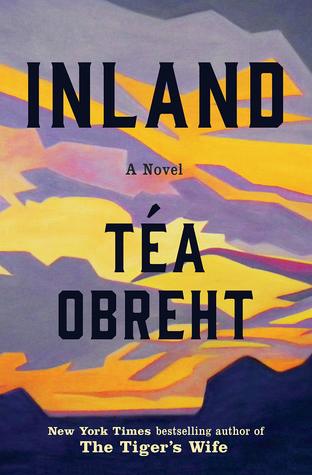
Inland by Téa Obreht has just come and I’m glad to have read it, although I can’t say I loved the book. It’s a braided narrative involving decades in the life of an orphaned immigrant (eventually a “cameleer”) and one day in the life of an unhappy frontier wife. The two stories share themes of flight and drought, as well as hardships on the frontier. I wrote a full review of this one for the New York Journal of Books, and I concluded in the review that the novel left me unsatisfied. While there are thematic linkages between the two narratives, the plot linkage is pretty thin. (Hard to explain what it is without giving away the one little thrill that the book offers.)

Tacoma Stories by Richard Wiley is a fine collection of linked short stories set (mostly) in Tacoma, Washington. I’ve known Wiley for a while (and he blurbed my latest book) as we both served in the Peace Corps in South Korea, although he was there long before I was. Although Wiley has written about Korea in earlier books, this one has just a reference to that country, as one of the main characters reflects on his military service there and a later visit when he encounters a woman he had known. I like to see one story in a linked collection that serves as a capstone, and this book’s finale is a terrific way to end a work like this, at least from a writer’s point of view, as it is an opportunity for several characters to come together and reflect on the fact that they are characters in a book by one of their old friends. It’s a bit of metafiction that, in my view, takes this book to another level.
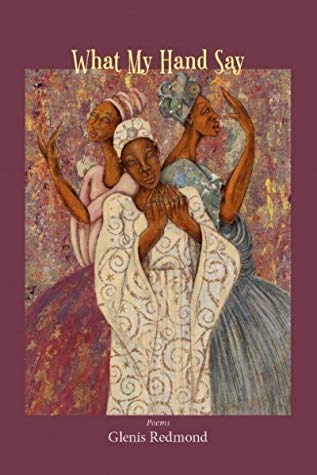
What My Hand Say by Glenis Redmond is a collection of poems praised by Kwame Dawes and Kathryn Stripling Byer. Redmond’s poems offer a real range of emotions, some of intense anger, some sadness, some love. At their heart is the African American experience, from the unimaginable harshness of enslavement to the pain of discrimination. An empathetic reader will find much to appreciate here.
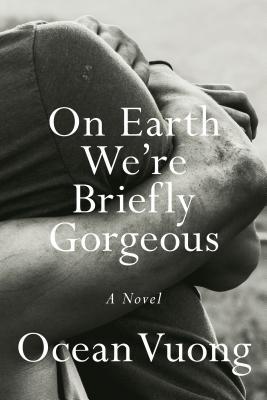
On Earth We’re Briefly Gorgeous by Ocean Vuong is novel in the form of a long letter to the narrator’s mother. They are immigrants from Vietnam who have endured a range of hardships, but the narrator responds to the abuse his mother perpetrated on him as well as the madness that afflicted her and her own mother. As a boy, Little Dog, as he is known in the family, becomes attracted to a white boy and experiences sex with him. Ultimately, the novel combines the immigrant story with both coming of age and coming out tales. Vuong, a poet, writes beautifully (although sometimes obscurely), and that helps freshen the story he’s telling, which otherwise feels too familiar.



I felt pretty much the same way about “Inland.” It’s very well written though a bit raw for my taste, and I agree with you about the linkage. It’s the kind of thing that I say, like you, yes, I’m glad to have read it, but if I had read more reviews before buying it, I’d probably have passed. I was seduced by the cover interview with Obreht in Poets & Writers and by hearing her read at the Brooklyn Book Festival. Is your review online anywhere?
Yes, it is. Two days ago I did a blog post about book reviews and linked to several of mine: https://cliffordgarstang.com/book-reviews/